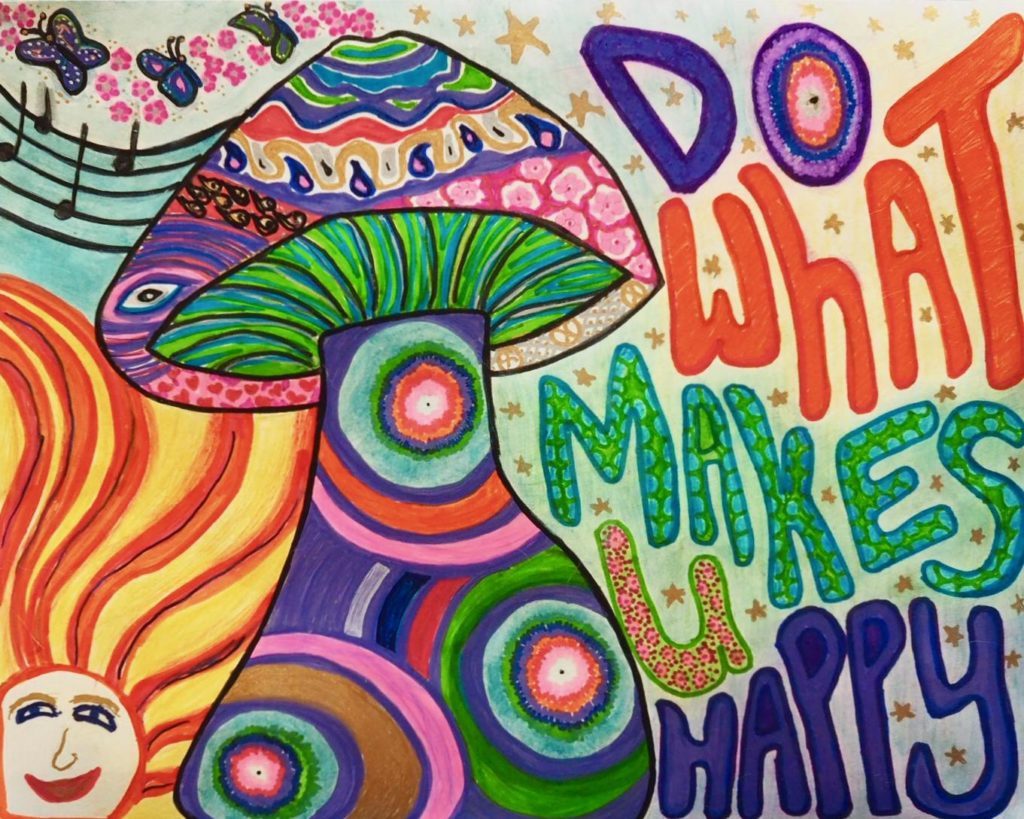

You can read my review of Brian Muraresku’s The Immortality Key here at Quillette. It stirred up quite a response from those readers, always a very critical, free-thinking bunch of people, in my experience. Of Quillette readers, that is.
Some of the comments bear particular consideration. For instance, the first comment by Ian_A. He says, “There’s a problem in this argument. All his examples are of psychoactive drug use in the context of religious ritual or public group culture, with underlying rules of behavior and ritual expectation. But then he says this is good evidence for laissez faire individual-choice private use of these drugs.”
Of course he’s right to distinguish between practitioners of a religion who happen to use psychedelics and those he calls “stoners,” but when he sees this as a problem with my argument, I have to respectfully disagree. Isn’t “laissez faire individual-choice” including even “private use of these drugs” premise of religious community? Freedom of religion is premised on individual choice, and that, in turn, has to be rooted in the right of individuals to explore, experiment and come to their own conclusions about the nature of God, worship, ritual, and prayer.
There are more serious and detailed criticisms which I won’t go into here, but you can read them after the review, and many of them are quite interesting and enlightening (especially those comments by “Tom111,” some of which I found particularly insightful).
On the other hand, I found it shocking and disheartening that so many Quillette readers demonstrated such ignorance about the distinction between drugs (addictive substances that narrow one’s consciousness) and psychedelics (non-addictive substances that open one’s consciousness). For many, “drugs” is an all-inclusive category without distinctions. I think those readers would benefit from taking a look at Ralph Metzner’s piece, “Addiction and Transcendence as Altered States of Consciousness.”
The whole issue of psychedelic “drugs,” or what many these days prefer to call “entheogens,” is complicated and complex. I agree with Peter Furst that more attention needs to be given to those “societies that long ago institutionalized the psychedelic phenomenon–with ritual rather than legal controls–and that have employed hallucinogens for centuries without the dire social and individual consequences” we’ve paid in the modern world. The Native American Church, the Uniaõ do Vegetal (UDV) and other religious institutions who make sacramental use of entheogens show that an intelligent, responsible use of these substances (which I refuse to call “drugs”) is not only possible, but part of a long tradition not only in the Americas, but around the world. And Muraresku, I believe, shows they were likely an integral part of Greek religion and paleo-Christianity.
The conclusion of my article might seem flippant to some (especially to some fellow addicts in recovery), but I think Ronald Siegel is right when he argues that everyone, and everything, likes to alter its consciousness. Metzner, in the piece I referred to above, also finds this to be a compelling thesis, and points out that consciousness is a process of constant change, and among those changing states are the binaries of “sober” and “intoxicated.” Siegel argues that the real problem is finding ways, not to eliminate intoxication, but to make it more safe by finding drugs that don’t have the side-effects of addiction, physical or mental debilitation, etc. I’m not sure completely safe intoxication will ever be possible, but I do believe that’s a better aim than that proposed by what he calls the “Calvinist psychopharmacology” of the drug war that seeks to lock up those who would dare to alter their consciousness with sanctioned chemicals and plants.